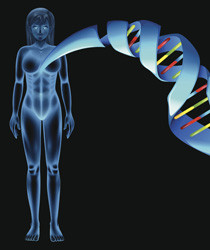The ethics of human enhancement
Essentially, the term human enhancement describes the improvement of human health, well-being or capacity through new biotechnologies. Opinions about the ethics of the subject are complex and cover the complete spectrum from strongly in favour to strongly against. The EU funded the FABRICED project to study the differences between French and British attitudes to human enhancement. Based at the University of Bristol (United Kingdom), the study ran for two years, beginning in September 2011. The research was also intended to contribute to the debate and to explore the subject in a broader European context. In conducting its investigation, the project interviewed 24 leading academics in the study countries, and participated in numerous conferences and other discussion meetings. One of the conferences was a public event. The team also created a network of researchers and a special interest group, and prepared several funding applications. As a result, the consortium achieved a greater understanding of the meaning of the term enhancement in ethical policy discourse, and of the role of biosciences. In addition, the study established a common basis for future ethical debate, and enriched the discussion through new disciplinary perspectives. Numerous academic and popular publications are expected. FABRICED developed and clarified the ethical issues surrounding human enhancement, which may lead to firmer policy guidelines for Europe.




